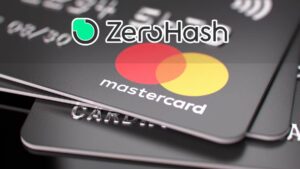TL;DR
- Goodbye to hexadecimal addresses: Users will be able to send cryptocurrencies using simple “username” style aliases instead of long codes.
- High-speed infrastructure: Polygon was selected as the base network due to its speed and capacity for institutional-grade settlements.
- Integrated verification: Mercuryo will manage the identity process and credential issuance via soulbound tokens.
Mastercard Crypto Credential for self-custody is optimized to reduce friction in digital asset adoption. The global payments giant recently announced the expansion of its solution, an initiative that featured collaboration with Polygon Labs and payments infrastructure provider Mercuryo.
This strategic alliance seeks to transform the user experience by replacing intimidating blockchain wallet addresses—those long strings of alphanumeric characters—with verified, easy-to-read aliases.
The official statement indicates that the goal is to integrate a verification layer directly into wallet environments where the user maintains control of their funds (self-custody). With Mastercard Crypto Credential for self-custody, transactions will be as intuitive as sending an email, drastically reducing the risk of human error when copying addresses and increasing trust in digital transfers.
A Strategic Alliance on Scalable Infrastructure
Mastercard selected a multidisciplinary team to carry out its vision. The Polygon network was chosen for its proven capacity in speed, reliability, and an infrastructure ready for mass payments. Polygon’s Proof-of-Stake network offers low transaction costs and high throughput, critical elements to support activity at a global payments scale.
Additionally, recent network upgrades, such as Rio and Heimdall v2, have strengthened transaction finality and eliminated reorganization risks, consolidating Polygon as a hub for fintechs and neobanks.
On the operational side, Mercuryo will act as the initial issuer responsible for user onboarding. The process entails Mercuryo performing identity verification and issuing the alias. Subsequently, users can link this alias to their wallet and request a Mastercard Crypto Credential for self-custody soulbound token (non-transferable) on the Polygon network. This token functions as an on-chain signal certifying that the wallet belongs to a verified user and meets credential processing standards.
For Polygon in particular, the launch of this initiative arrives at a moment of significant momentum. It comes just a week after Calastone integrated its tokenized fund distribution solution onto the platform, reinforcing the trend of institutional adoption in Layer 2 solutions. With this new tool, Mastercard reaffirms its commitment to delivering secure, scalable, and familiar blockchain experiences for consumers worldwide.











